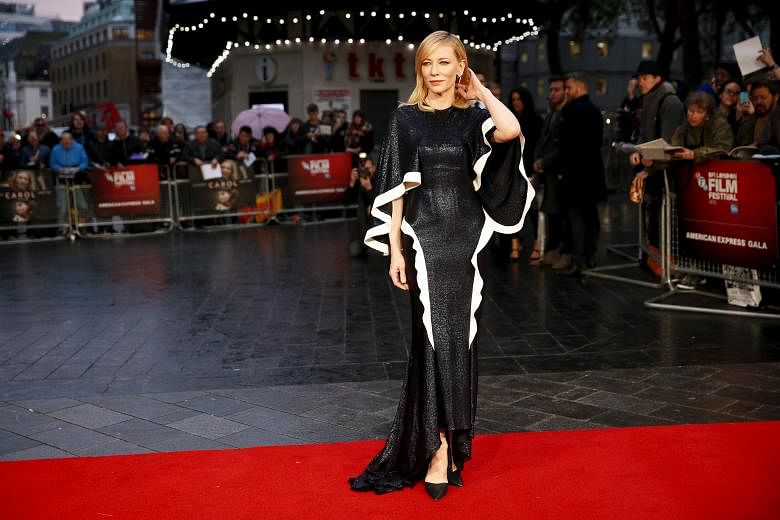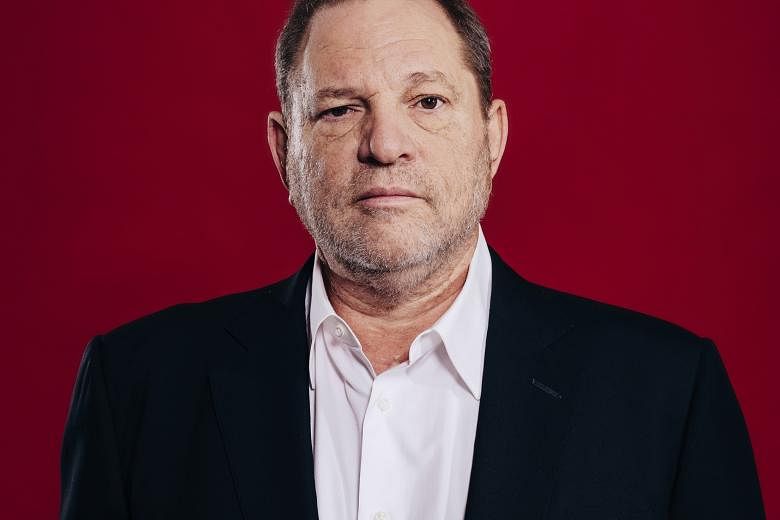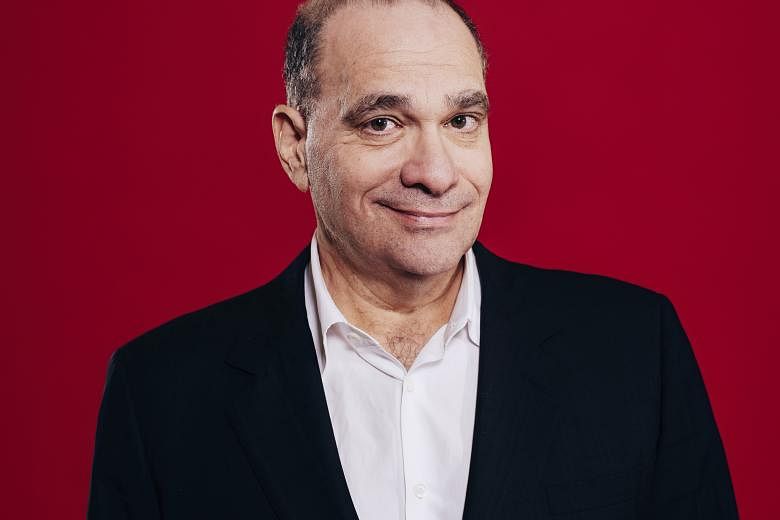NEW YORK • Harvey Weinstein was in motion.
It was 9.50 on a Friday morning, and he was agitated, frazzled. He arrived at the tearoom of the Peninsula Beverly Hills hotel straight from a breakfast meeting on the hotel rooftop.
Wearing a black T-shirt with black suspenders, he had not yet settled in behind a bright pink floral setting when, dispensing with pleasantries, he started talking.
"We renewed our contracts," Harvey said, hurling the news like Zeus tossing lightning bolts. His eyes darted. His close-cut, greying hair rose a bit. Was it static electricity? A force field?
Harvey, 63, and his brother, Bob, 61, stand in a long line of film executives - Samuel Goldwyn, Jack Warner, Peter Guber, Michael D. Eisner come to mind - who appear as dramatic in real life as their characters do on screen, the plot of their lives in perpetual rising action.
Just in the last weeks, The Hunting Ground, a new Weinstein-produced documentary about campus sexual assault, has been slammed by critics who question its accuracy even as it becomes an awards prospect.
At the same time, police unions are threatening to boycott another Weinstein production, Quentin Tarantino's The Hateful Eight, which will be released on Christmas, because they are upset by remarks Tarantino made about police violence.
Those external forces are not the half of it.
At The Weinstein Co, plot twists abound. Friction has been reported with the board of directors over the renewal of employment agreements for the brothers, co-chairmen of The Weinstein Co.
But Harvey insisted that the only hitch was that the brothers wanted to link their contracts with that of Mr David Glasser, Weinstein's president and chief operating officer. The contracts were signed safely before the Dec 31 expiration date of the Weinsteins' pacts.
Resolving that matter, however, did not address the main issue between the brothers and a newly assertive board. The fact is, investors who put their money behind the brothers in their venture 10 years ago are itching for more than Oscar-worthy entertainment; they want a payout.
Mere survival is a challenge for most independent film and television companies. Dogged by a need for immediate cash to produce and market movies that will not return their investment for years, if ever, smaller studios are perennially capital-hungry.
When the borrow-and-build cycle gets ahead of itself, collapse or forced sale often follows.
Relativity Media, a midsize Hollywood conglomerate, filed for bankruptcy in July when it could not make payments on about US$675 million (S$953 million) in secured debt.
New Line Cinema, Picturehouse, ThinkFilm and FilmDistrict are among the independent distributors that were closed or merged into a better-heeled parent.
A crucial moment of reckoning, too, seems to have come for The Weinstein Co as long-standing investors, including the WPP Group, French broadcaster TF1 Group and Technicolor, are looking for their payday.
"Quite frankly," Harvey said, "we have to monetise."
For the Weinsteins, monetising through a sale appears out of the question: They have little interest in repeating a mistake they made in 1993, when they sold their Miramax Films to Walt Disney for US$60 million, only to see it resold to others in 2010 for more than 10 times that amount. So that means the brothers are trying to beat the odds. They are looking both for a large corporate transaction and for big-dollar film and television hits.
The renewed quest for commercial success means bending, if not quite breaking, their aesthetic, by scaling down the number of arty awards bets, such as this year's lesbian-themed romance Carol (which led the Golden Globe nominations this month, with five) from Harvey, while leaning into bigger, broader fare like the pending Paddington 2 from Bob's Dimension Films unit.
While success in such a strategy is rare, some in the industry are loath to bet against the brothers.
"The extraordinary nine lives of Harvey makes Houdini and Barnum look like sideshow acts," said Mr Barry Avrich, who studied the Weinsteins for his 2011 documentary, Unauthorized: The Harvey Weinstein Project. "He will use his pipeline of talent and projects to secure the next tranche of cash," he predicted. "He always does."
The likeliest option to satisfy investors seems to be the formation of a partnership for Weinstein's television unit, which is growing quickly and generally provides more reliable returns than the hit-and-miss film business.
Ms Nancy Dubuc is the chief executive of A&E Networks, which has carried more than six shows in Weinstein's Project Runway series and has a Weinstein mini-series, War And Peace, scheduled for next month.
She says Weinstein is strong enough in television to attract a buyer or investor who might pay for a stake in the unit.
The network has four Weinstein pilots in development, Ms Dubuc said.
"Television, like film, comes down to taste, and Harvey has it," she said.
Mr Ted Sarandos, Netflix's chief content officer, agreed with Ms Dubuc's vote of confidence.
Weinstein, like other independent companies, he said, may be able to build financially robust operations around deals with video streaming companies such as Netflix that were not a significant presence 10 years ago.
But he also sounded a note of caution.
"I'm not going to say yes or no, either way," he said when asked about a possible venture with Netflix. "But we don't need to own other people" to acquire their films and shows.
Success in pursuing any of those options will depend heavily on Bob. He has been the less visible "other brother".
But internally, he is acknowledged as an equal (and equally loud) voice in large decisions and as perhaps the larger contributor to the bottom line.
"We both took movies to the next level," Bob said. "We turned art into commerce."
NEW YORK TIMES



